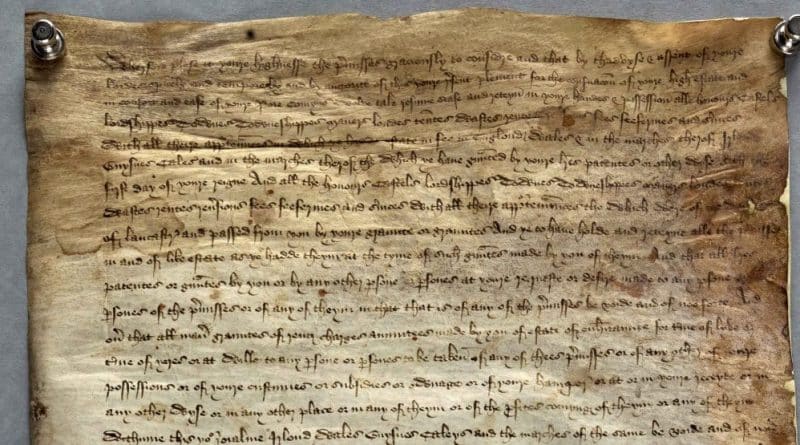Expenses for Members of Parliament
An ordnance dated 1st April 1450 confirmed that Members of Parliament would be paid expenses to attend Parliament if it were called to sit outside London.
Medieval Members of Parliament: Finances
Not every member of Parliament was an incredibly wealthy baron or knight. Some had relatively limited means when the expenses associated with their households, and ties to their overlords were taken into consideration. This meant that for some members of Parliament, leaving their estates was quite prohibitive financially.
Expenses for Medieval Members of Parliament
To counter the problems associated with attendance at Parliament, and the regular changes of location, it was determined to pay expenses in certain circumstances.
Those circumstances were:
– Where Parliament was to be held outside of London.
– The Members income was less than 40s per annum.
– The Member held a rank lower than that of Lord.
– Such expenses were capped to £3 per annum.
– Expenses were to be forfeit where the member was a commissioner, or should they fail to appear before a commissioner.
Reform of Medieval Parliamentary Processes
This is one of the earliest occasions where Parliament was reformed to make attendance open to more people. Though it remained the case that members were men of some standing, it ensured that those with limited means could represent the counties that had elected them.
Medieval Parliament Links
History of Parliament, Medieval (Official)
Parliament.uk The Middle Ages (Official)
Locations of Parliaments held in the Late Medieval Period (Official)
History of Parliament – Medieval (Official researchers blog)
Image
Act of Resumption 1451,Parliamentary Archives,HL/PO/RO/1/39
Context
The granting of expenses for Members of Parliament attending sessions outside of Westminster was granted in the reign of King Henry VI. It came at a turbulent period. Revolts had broken out, largely in the South East, most notably under the leadership of Jack Cade. Tension was also heightened within parliament as England suffered reverses in the Hundred Years War, faced economic problems, and had accusations of poor governance and corruption levelled at senior advisors such as the Duke of Suffolk who was murdered whilst travelling to exile following his impeachment.
